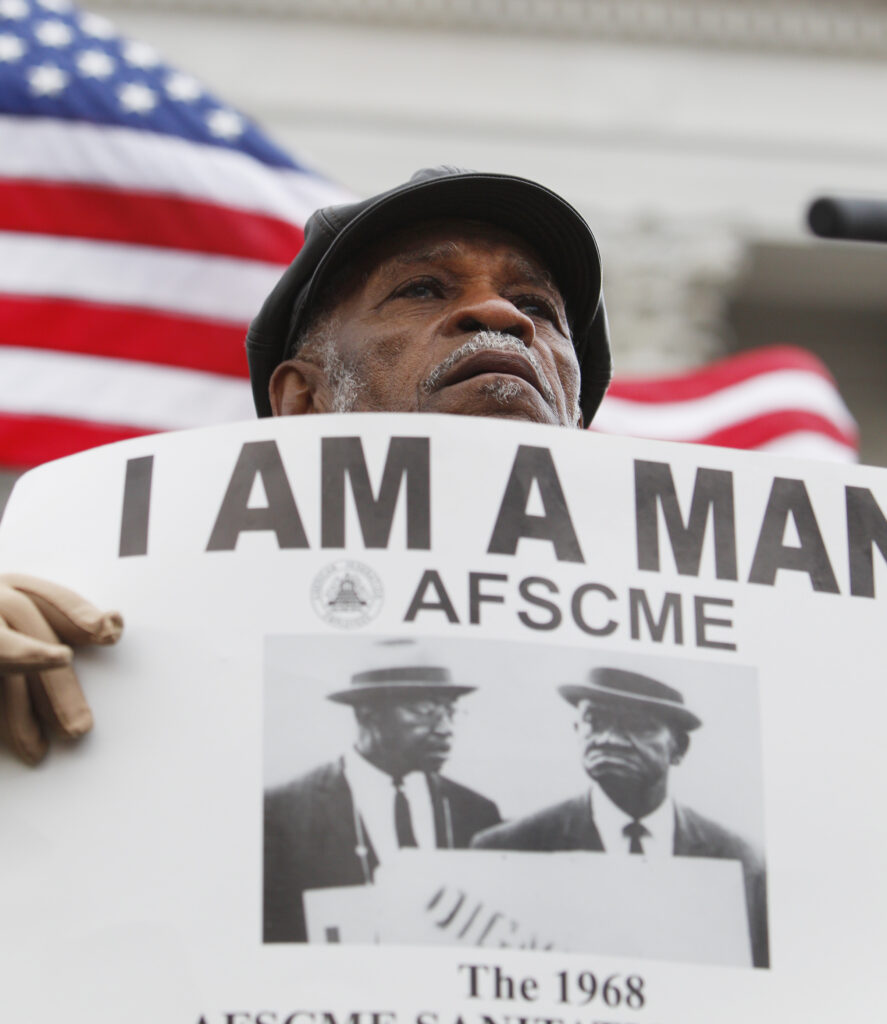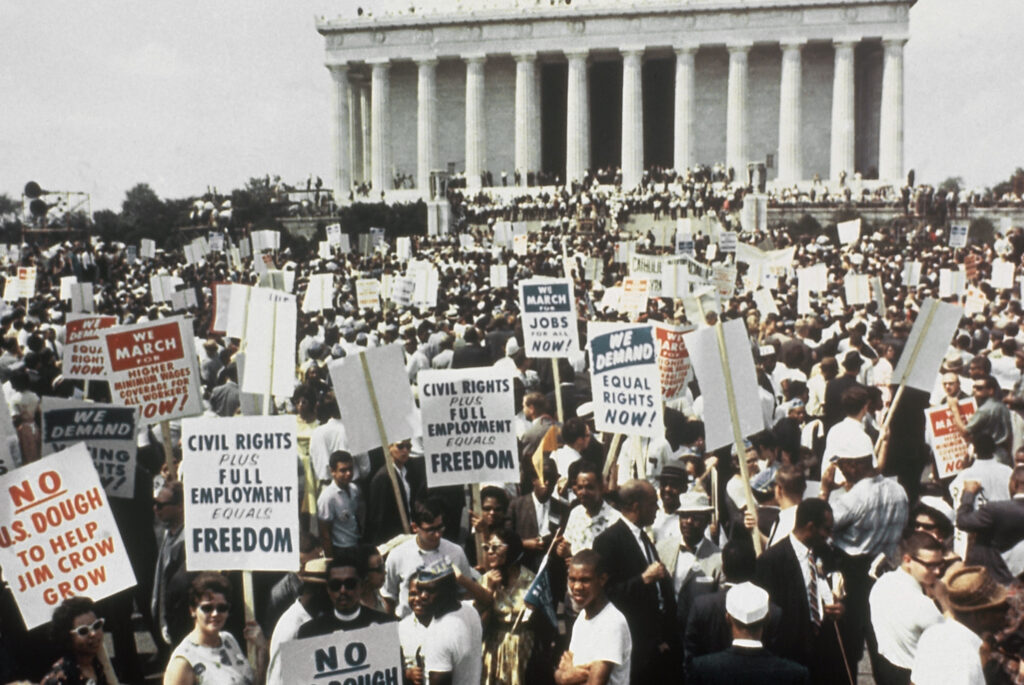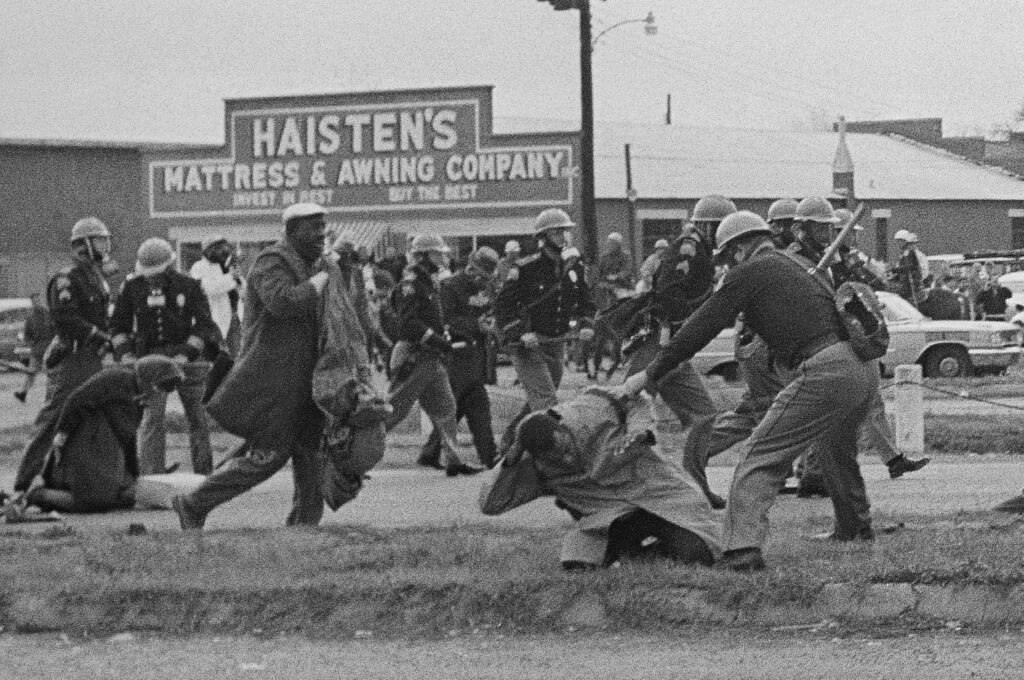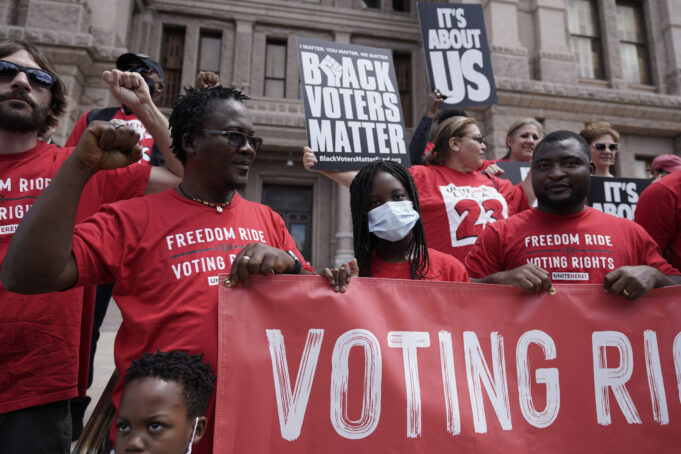For nearly 100 years, from the 1870s to the 1960s, Jim Crow laws shaped Black life in America. The laws enforced and legalized racial segregation, keeping Black people in a state of inferiority after their “emancipation” from slavery.
Then, the Civil Rights Act of 1964 and the Voting Rights Act of 1965 were passed. The acts were supposed to improve life for Black people in America. They were supposed to end discrimination based on race, color, religion, sex and national origin, thus creating a “melting pot” utopia for America’s so-called citizens.
Yet, 60 years later, Black people are still suffering from systemic racism and discrimination.
On March 1, the National Urban League released its annual “State of Black America” report, titled, “The Civil Rights Act of 1964: 60 Years Later.” The report’s 28-page executive summary acknowledges that “(60) years later, the fight for equality is far from over.”

Marc H. Morial, president and CEO of the National Urban League, listed the promises of the Civil Rights Act of 1964, as expressed by President Lyndon Johnson: “a more abiding commitment to freedom,” “a more constant pursuit of justice” and “a deeper respect for human dignity.”
Mr. Morial writes:
“Our ‘abiding commitment to freedom’ is undermined by discriminatory voter ID laws, gerrymandering, the shuttering of polling places in predominantly minority neighborhoods, limits on early voting, and reckless purging of voter rolls.
“Our ‘pursuit of justice’ is derailed by persistent racism in policing and sentencing, the dismantling of diversity and inclusion policies in employment and education, and lack of access to financial services, housing and healthcare.
“Our ‘respect for human dignity’ is called into question by an unraveling social safety net, a poverty-level federal minimum wage, and other economic policies that uplift the wealthy at the expense of working families.”
He emphasized a need to uproot “the deep racial divisions that remain embedded in our institutions so we can live according to the ideals the Civil Rights Act represents.”
The attack on civil and voting rights
The State of Black America report looks at life before the Civil Rights Act and how the act is under attack today.

“A movement to roll back 60 years of equity, opportunity, and physical safety has made its way to our courts, state houses, and Congress. What may seem like legal challenges protecting religious freedoms and states’ rights is a coordinated attack on the Civil Rights Act of 1964,” the executive summary states. “Our freedoms are not free. It is time for us to organize and fight back.”
Examples of such attacks include the Supreme Court’s June 2023 decision to strike down affirmative action programs in college admissions and the lawsuit against Fearless Fund, an Atlanta-based venture capital fund that supports Black women who own small businesses.
Recently in Alabama, more than 6,000 voters in a newly formed congressional district drawn to heighten Black voting power received postcards with incorrect voting information, according to the Associated Press. One Democratic candidate called what happened “classic disenfranchisement.”
“The Civil Rights Act of 1964 was great, but it’s an act,” Dr. Ray Winbush, director of the Institute for Urban Research at Morgan State University in Baltimore, said to The Final Call. “And in America, I’m going to be honest with you, White folks are always talking about law, and Black people are always talking about justice.”
“An act can always be changed, and we’ve seen your acts change, particularly the Voting Rights Act. It’s been eviscerated. It’s just been destroyed on so many levels. And think about the 1964 Civil Rights Act, which gave us a bunch of things during the ’60s,” Dr. Winbush added. “Now look at what’s going on. Look what happened in Florida.”
To comply with a new state rule, the University of Florida eliminated diversity, equity and inclusion (DEI) positions, including the Office of the Chief Diversity Officer, and stopped DEI-focused contracts with outside vendors, according to an administrative memo published on March 1.

“They fired everybody. That couldn’t have happened if you had a strong Civil Rights Act. So, you see these slow but sure attacks,” Dr. Winbush said.
He acknowledged that “nobody’s going to say we’re attacking the Civil Rights Act of 1964,” but instead, the attacks manifest in subtle ways.
“They said, ‘We’re going to attack Black studies. We’re going to attack affirmative action.’ Diversity is almost a dirty word right now,” he said. “Right now, White folks are saying, and the system of White supremacy is saying, not only do we not want ‘integration,’ we’re going to do everything we can to dismantle any advances by Black people, women, everybody. We’re just going to take all of it.”
“This is a gloomy 60th anniversary of that act,” Dr. Winbush said.
Promises kept?
The National Urban League’s State of Black America 2024 report acknowledges the “promises kept” under the first term of the Biden-Harris administration, and it attempts to encourage Black people to fight and overcome the attacks against civil and voting rights and to continue to buy into the system.
Despite the “promises kept,” Black people are dissatisfied. Within the National Urban League’s own report, Dr. Rhonda Vonshay Sharpe, president and founder of the Women’s Institute for Science, Equity and Race, published an overview looking at discriminatory voting tactics, inequality in education, economic inequality and discrimination in employment.
While more Black people are registered to vote and more are voting in presidential elections than in previous years, fewer Black people are registered to vote for midterm elections, and fewer are casting a vote, according to Dr. Sharpe’s analysis. Today, Black students are still more likely to attend schools with less qualified teachers and are more likely to have uncertified and/or inexperienced teachers compared to White students.
Economic inequality is a persistent problem, with Black men earning $91 less per week and Black women earning $72 less per week in 2024 than in 2000. Black households had 64 cents for every White household dollar. Black homeownership decreased from 64 percent in 2000 to 61 percent in 2024, and Black people are still disproportionately unemployed compared to Whites.
Student Minister Dr. Abdul Haleem Muhammad, Southwest Regional Student Minister of the Nation of Islam, examined the past 30 years of presidential administrations—Clinton, Bush, Obama, Trump and Biden—and noted how America is unraveling.
“In spite of some of the good things that each administration has done, the underlying problem of America—greed, inordinate self-interest and White supremacy and Black inferiority—still remain and are at the root of the unraveling. You applaud the Biden administration for the progress that it’s made, but unfortunately, it may be too little too late,” he said to The Final Call.
The dissatisfaction of Black people in America is showing up in polling results. According to a GenForward survey released on Dec. 12, 2023, 20 percent of Black respondents said they would vote for someone other than Biden or Trump, and 20 percent of Black and Latino respondents said they would not vote if the election were held that day.
Polling numbers also show a decline in Black voters for Biden and a jump in support for Trump. In 2020, 12 percent of Black voters sided with Trump and 87 percent chose Biden, but in late 2023, 22 percent of voters said they would vote for Trump and 71 percent said they would vote for Biden, according to polls by NBC News and The New York Times.
Marcus Muhammad, mayor of Benton Harbor, Michigan, noted how the question has always been how Black people fit into the fabric of American democracy. “Black people are now in a conundrum and asking the question, ‘Where do we go from here?’” he said to The Final Call. “I think we have to reevaluate, reassess and really examine what is our future in this democratic system that’s ruled by two parties.”
The Muslim Program
The National Urban League’s proposed solutions to the attacks against the Civil Rights Act and the problems that still plague Black life in America include registering to vote, petitioning, demanding diversity in the workplace, standing against unjust laws and diversifying the school system.
The essays written by the report’s 20 contributors boast of working toward an equal and just America, saving democracy, upgrading and improving the Civil Rights Act of 1964 and doubling down on the fight for freedom, justice and equality.
Yet, Dr. Winbush advised Black people to “forget about going to White people and saying, ‘Would you please enforce the Voting Rights Act?’ … ‘Would you please hire all the people you just fired from the University of Florida?’”
“They ain’t gon’ do that,” he said.
He described how Black people have gotten lax in organized mass protests and sustained efforts to deal with egregious injustices. “There should be mass protests right now about the erosion of Black studies, the Voting Rights Act,” he said. “It’s up to us to fight for our freedom. It ain’t up to White people to grant them to us. We got to fight for it.”
In 1965, as the U.S. government implemented civil rights and voting legislation, the Honorable Elijah Muhammad, the Eternal Leader of the Nation of Islam, published his book, “Message to the Blackman in America.” As part of the book, he ideated “The Muslim Program” and stated that it should be put before Congress.
“The Civil Rights Bill and integration will not stand and can never bring independence to you and your people, no matter who is President. The wisest and surest way to success is to unite behind me,” the Honorable Elijah Muhammad wrote.
He advocated for Black people to be allowed to establish a separate state or territory of their own and stated America’s obligation to maintain and supply the needs of Black people in said territory for 20 to 25 years. That would be reparations for Black people, Student Minister Dr. Haleem Muhammad said.
Mayor Marcus Muhammad urged all of America—Black, Asian, Hispanic/Latino and even poor Whites—to look at The Muslim Program.
“The Muslim program is the solution, ultimate solution, to the race problem, the problem of inequity, the problem of injustice and the problem of freedom for all residents or citizens regardless to creed, class or color,” Mayor Muhammad said.
Along with putting The Muslim Program before Congress, the Honorable Elijah Muhammad advocated for Muslim politicians and good Black politicians.
“I think that Black America is at a crossroads where we have protested, we’ve sat in, we walked in, we marched. We have elected mayors and congresspeople,” Mayor Marcus Muhammad said. “We have more millionaires and professionals at any time in our history in America, but we see the masses slipping and falling backward, and that’s why it’s important that we unite, use our political power … for the upliftment of our people.”













